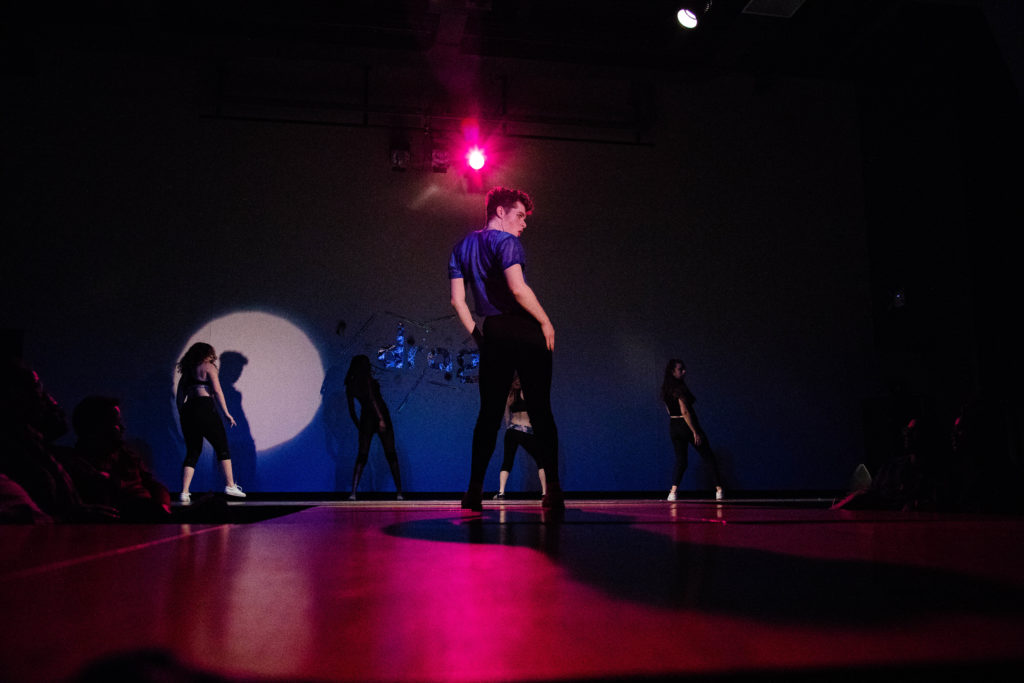
Last week was Pride Week at the College. Every day from Monday, April 9, through Saturday, April 14, the Stonewall Resource Center (SRC) and affiliated groups hosted events for LGBTQ+ students.
Ric Tennenbaum ’18, co-coordinator of the SRC, gave an open call for students to host pride-related events. She highlighted the importance of events that bring together students with various identities, saying, “I think the importance of Pride Week is in parsing out all these different fields of queerness and different little interests people have within queerness and being able to … really get into it.”
For many, Pride Week presented a moment to reflect on what it means to be LGBTQ+ at Grinnell College. There are a multitude of LGBTQ+ identities of Grinnellians, many of which are addressed by student groups that focus on different experiences and concerns.
One such group is Queer People of Color (QPOC), led by James Caruso ’18. According to Caruso, “QPOC’s focus over the past several years has been to provide a space for queer people of color on campus … to come together and talk. … Especially for queer students of color, we have that double identifier of otherness or of difference … and I think being here in Grinnell where this school is predominantly white, predominantly straight and cisgender, and the town itself is predominantly conservative, … here can be very difficult.”
Another student group that addresses a specific LGBTQ+ experience is Out in STEM, co-founded by Allison Bartz ’18 as a place for LGBTQ+ students in STEM to come together.
“We made it because there wasn’t any group that was sort of associated with STEM students in LGBT stuff,” Bartz said. “The idea is that if you don’t know that there are other queer students in your classes, you might feel kind of isolated or nervous ’cause … there’s a lot of straight men in a lot of classes and they like to talk a lot. … It’s good knowing there are people to talk to if you need help.”
Trans Advocacy Group (TAG) is a group on campus that addresses the needs of transgender students. Loyal Ulm ’20, a TAG leader, has helped push for the College to make various changes in the interests of trans students
“A lot of what we do in TAG is looking at a lot of small things that come up for students throughout the school year,” Ulm said. “For example, last year … if students had issues with CAs assigning bathrooms, … we would sort that out, working with Intercultural Affairs to get P-Card names changed, getting dead names off Dean’s List.”
Queer Athletes and Allies (QAA) provides a safe space for those navigating often heteronormative experiences as athletes. A member of the group said that “[QAA is] a space for us to talk, and a space for us to be aware of other queer athletes who are younger and who are trying to figure it out in their typically heteronormative teams.”
The QAA member, who wished to remain anonymous, said that they feel the SRC does not necessarily provide a space for people “for whom being queer is not the most central part of our identity.” They also referred to the relationship between athletes and non-athletes at the College, citing their belief that SRC community members “won’t like sportos and everything that sportos stand for.”
Mental illness and LGBTQ+ issues are also often closely tied at the College.
“There’s a very strong relationship between people who have mental illness and people who are queer on campus,” said Luke Jarzyna ’18, who organized the Freesound and English SEPC Open Mic during the week. “I wish there were more resources, potentially, and I feel like people still experience those things in isolation.”
The draft of the new Diversity and Inclusion Plan, released earlier this month, includes a discussion of the importance of spaces on campus to “promote student healing.” It remains to be seen whether this will apply specifically to LGBTQ+ students.
Although being LGBTQ+ presents difficulties while at Grinnell, the college environment can also provide hope. Jarzyna pointed out many ways that the English Department has supported queer studies within English classes. He noted the importance of the College hosting three recent Writers@Grinnell events that featured queer writers: Ocean Vuong, Marlon James and Roxanne Gay.
“I know for me and a lot of other writers on campus hearing those perspectives on campus really meant the world,” he said. “I feel very supported by hearing these people speak.”
Even with Pride Week now in the past, LGBTQ+ students at Grinnell continue to strive for community, visibility and growth at Grinnell.

















































